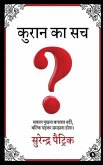Revelation differs from tradition. Revelation is divine; tradition is human. Tradition is a reflection of revelation in practice. Unfortunately, partly because of the rejection of reason, and partly because of political factors, tradition is also treated as revelation. The fusion of tradition with revelation corrupted the knowledge of revelation. Treating tradition as "revelation" transformed tradition into a "partner" and a "part of" revelation. In time, tradition superseded revelation. This resulted from the enchantment with tradition. It reflected a re-orientation from revelation to tradition. The subordination of revelation to tradition was enabled by the repression of reason. This transpired despite the utilization of reason in the authentication of traditions. Treating tradition as revelation enabled tradition to "transcend" revelation. This was reflected in the perception that tradition could judge, abrogate and even replace parts of revelation. Treating tradition as revelation, able to abrogate and replace revelation are tantamount to scriptural and juristic shirk. For the perception that tradition is capable of "abrogating" and "replacing" parts of revelation treats tradition as superior to Allah. Tradition is expected to follow revelation. Regrettably, traditions do not always reflect revelation accurately. At times tradition flouts revelation. As a result, a chasm emerged between revelation and tradition. The extent of the gap between revelation and tradition reflects the extent to which we fail to measure up to the teaching of revelation. Because of the "gap," tradition (practice) requires being brought into agreement with the teaching of revelation (theory). Practice of Islam is expected to follow and reflect its teaching. A gap between the teaching of revelation and its practice (tradition) emerged regarding rulings on adultery and apostasy. These rulings were drawn from traditions rather than revelation. Tradition "eclipsed" revelation. The "eclipse" of revelation by tradition requires attention. For the subordination of revelation to tradition is against the teaching of revelation. Tradition requires being subordinated to revelation, not vice versa. The enactment of revelation requires knowledge of the relationships between revelation and tradition, between revelation and reason, and between tradition and reason. A misrepresentation of these relationships is bound to corrupt knowledge and result in miscarriages of justice. Anti-rationalism, driven by politics, triggered errors which tainted the epistemology of revelation, both exegesis and jurisprudence. The errors emerged from the failure to retain a tauhidic worldview. The tauhidic perspective was tainted by exegesis where reason was subordinated to tradition. This resulted in the turn from revelation to tradition, subordination of revelation to tradition, the treatment of tradition as revelation, and the subordination of reason to tradition. The errors also encompass the teaching of predestination, recourse to the teaching of abrogation, the replacement of revealed rulings by ruling extracted from traditions and the rulings of the ulama. The errors also encompass the re-articulation of Islam as a religion of war with jihad al-talab being treated as a sixth pillar of Islam. This trampled on the injunction that there be "no compulsion in religion" and reinvented the religion of reconciliation par excellence as a religion of war. The treatment of tradition as revelation compromised the monotheistic basis of the epistemology of revelation. For the duality of revelation entails a fall into shirk, scriptural as well as juristic. This resulted in the corruption of knowledge, deformation of the sharia and miscarriages of justice.
Hinweis: Dieser Artikel kann nur an eine deutsche Lieferadresse ausgeliefert werden.
Hinweis: Dieser Artikel kann nur an eine deutsche Lieferadresse ausgeliefert werden.








